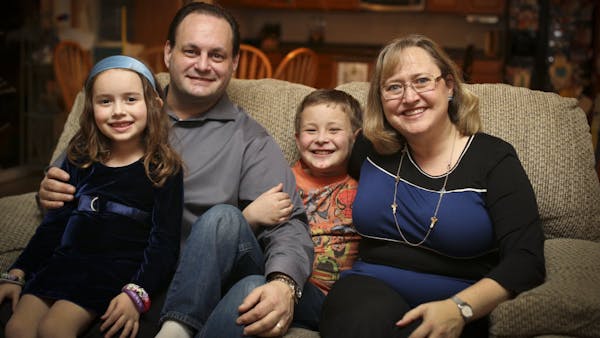Landlord Melvin Gregerson wanted to show judges and other elected officials how bad the problem with crack peddlers had become in the Phillips neighborhood of Minneapolis.
So Gregerson, owner of the Waldorf apartments in Phillips, joined fellow landlord Charlie Disney to take officials on "crack tours" of the neighborhood, just south of downtown Minneapolis — about 25 of them from 1996 to 1998.
From the back seat, those officials looked on, aghast, as Gregerson posed as a suburbanite making a curbside drug buy, then shooed the peddler away at the last moment.
"The point was to show influential persons that, while Minneapolis city officials were extremely strict with landlords when drug activity took place in their buildings, drug dealing took place openly on the streets, ignored by the police," said fellow landlord William McCaughey, a longtime friend and author.
Gregerson died Dec. 27 of complications of ALS, also known as Lou Gehrig's disease. He was 75.
From humble beginnings, through hard work and "penny-pinching," Gregerson became one of the largest owners of rental property in inner-city Minneapolis, McCaughey said.
"At one time he had more than 1,000 units, including those at the Waldorf on Park Avenue," McGaughey said. "He was a good landlord, but also one with a flair."
Gregerson didn't travel much. Instead, on Sunday afternoons after church, he and wife Myrna would drive around, looking over their current (and previous) rental properties.
For Gregerson, it was a long way from the farm where he grew up near Donnelly, Minn., 7 miles north of Morris. After high school graduation in 1956, he moved to Minneapolis.
He rented a small room with a hot plate and refrigerator while studying at Dunwoody Institute to become an electrician.
He followed that vocation until he found his passion in buying duplexes, then bigger units. He rented out modest and lower rent units.
But by the 1990s, the Phillips neighborhood, where Gregerson owned his biggest property, the Waldorf, was overrun by thugs and drug dealers.
"The city responded by holding landlords strictly responsible for criminal activity occurring not only inside their buildings but also in the adjoining yards, right up to the middle of the streets," McCaughey said.
"Police would stigmatize landlords by the number of 911 calls associated with their properties, regardless of size," he said, adding that some were fined.
Gregerson believed that city officials were overlooking criminal activity taking place openly on the streets.
So he and others in the Park Avenue block club held a news conference. Later, they launched a publicity campaign they called the "Minneapolis crack tour," a drive through Phillips to see how many crack dealers could be spotted.
Gregerson and Disney drove about 60 officials on the tours. They also took part in a cable show in which the issues were discussed.
"We just wanted the city to back off us, and we wanted some police work," McGaughey said. "We wanted some arrests to be made of the people who were dealing drugs in the open. And send squad cars through there who would actively disrupt the drug dealing, so the neighborhood would improve."
In addition to Myrna, Gregerson's wife of 53 years, survivors include daughters Liz Norris and Rosie Schueller and three grandchildren.
Services have been held.

Former Gov. Jesse Ventura boasts he could beat unpopular Trump or Biden if he ran for president

Dave Kleis says he won't run for sixth term as St. Cloud mayor
Newspaper boxes repurposed as 'Save a Life' naloxone dispensaries

St. Cloud house vies for Ugliest House in America

